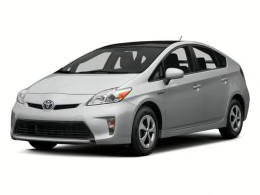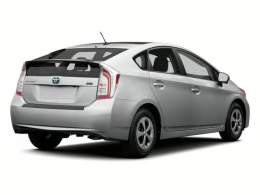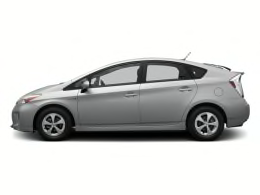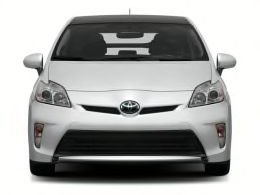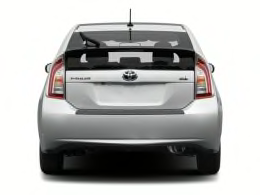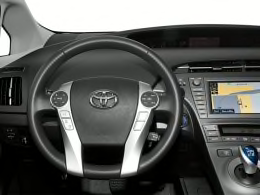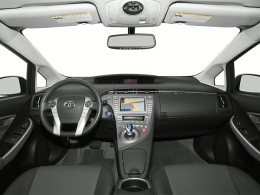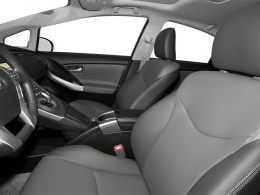The regular Toyota Prius is the most efficient car you can buy that doesn't have to be plugged into an electrical outlet. It gets an impressive 44 mpg overall in our testing--with plenty of room for five, a big flexible hatchback, a comfortable ride, and very secure handling. If there's a knock on the Prius, it isn't engaging to drive, feels underpowered and is loud when you ask for max power.
Getting the Prius Plug-in version includes a bigger battery that can be charged from any wall outlet, allowing the car to drive more on electricity and less on gas. A full charge gives an electric range of about 12 miles. While the battery was charged, we measured 67 mpg overall in combined city and highway driving.
When the battery runs out of juice, the car begins running like any other Prius, meaning the gas engine becomes the primary power source. Then its gas mileage drops to 43 mpg, one less than a standard Prius--because it has to haul around the extra weight of the larger and now-depleted battery pack.
Unlike other plug-in hybrid models, however, the Prius never completely eschews gasoline. In fact, it doesn't even come close. Even with the battery fully charged, electric operation is frequently disrupted by the gas engine as it kicks in unexpectedly. With only 134 combined horsepower from the gas engine and the electric motor, the car often needs all the power it can get. True gas-free driving is limited to those who live in flat areas, drive gently, have very short commutes, and can charge frequently.
The upside of such limited electric capability is a relatively small battery that can be recharged quickly. Even a standard household wall outlet can recharge the Prius Plug-in in about 3-1/2 hours. That means you probably won't feel the need to invest in a faster electric-car charger. If you do, though, the Prius Plug-in can be recharged in about an hour and a half.
The Plug-in's extra weight brings some penalties. Dry braking distances are longer than the standard Prius, and the car doesn't handle as well.
In the end, the Prius Plug-in strikes us as a half-baked, half-hearted, and even somewhat cynical effort by Toyota to keep the early adopting Prius audience in the fold as more advanced technologies appear. A few buyers may benefit from its enhanced capability, limited as it is.



















